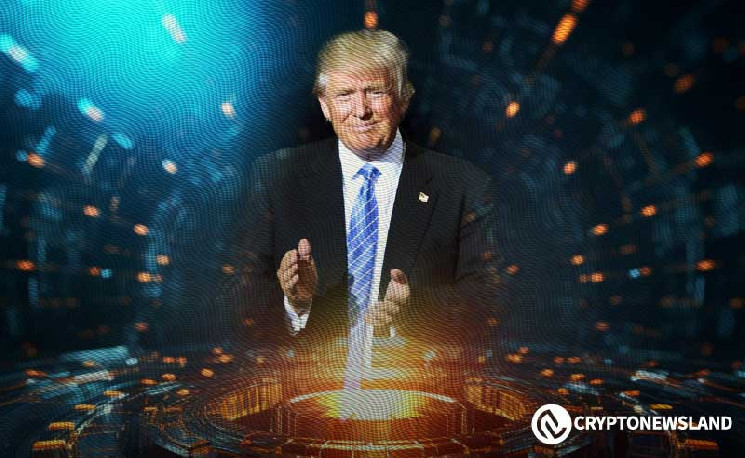- Trump’s tax-free crypto policy could boost U.S. projects, but risks disadvantaging global crypto competition.
- Foreign crypto projects may face a 30% capital gains tax, pushing investors to favor U.S.-based ventures.
- Ted Cruz plans to challenge the IRS rule on DeFi, citing privacy and innovation concerns in decentralized finance.
According to Martyparty, Donald Trump intends to remove capital gains taxes on cryptocurrencies located in the United States. The goal of this program is to make the United States the premier global center for cryptocurrency development by bringing blockchain innovation to the country. Eric Trump has further confirmed that projects like XRP and HBAR could soon benefit from zero capital gains taxes. Meanwhile, foreign crypto projects may face a 30% tax, potentially deterring international competition.
Will #Trump make “made in usa” crypto tax free?
Based on the information provided, there are strong indications that Donald Trump, as president, plans to implement a policy that would make “Made in USA” cryptocurrencies tax-free in terms of capital gains.
Here’s a summary of…
— MartyParty (@martypartymusic) January 26, 2025
A Game-Changing Policy for U.S. Crypto
This proposed tax policy could boost U.S.-based crypto projects. Consequently, it may encourage more blockchain initiatives to establish or relocate within the U.S. Moreover, the tax-free advantage could attract investors eager to reduce their tax burdens, thereby stimulating the domestic crypto economy.
However, this policy introduces substantial challenges. Foreign crypto projects would face higher taxes, creating a competitive disadvantage. This move could potentially fragment the global crypto ecosystem, which thrives on decentralization and borderless collaboration.
Ted Cruz Challenges New IRS Rule
Besides Trump’s policy proposals, Senator Ted Cruz is raising concerns over a new IRS regulation targeting decentralized finance (DeFi) platforms. The rule mandates brokers to file detailed tax reports, including users’ personal information and transaction data.
Cruz contends that in decentralized systems, this regulation would hinder innovation and jeopardize user privacy. Within sixty days, he intends to reverse the regulation under the Congressional Review Act. His proposal might be adopted because Republicans now control the majority in Congress.
Implications and Future Considerations
This is a turning point for the U.S. cryptocurrency market. On the one hand, Trump’s tax plan might make the US a leader in the world of cryptocurrency. On the other hand, it risks isolating international projects and raising ethical concerns about fairness and favoritism.
Similarly, Cruz’s challenge against the IRS rule reflects growing concerns over balancing regulation with innovation. If successful, it may pave the way for a more decentralized and privacy-focused regulatory framework.

